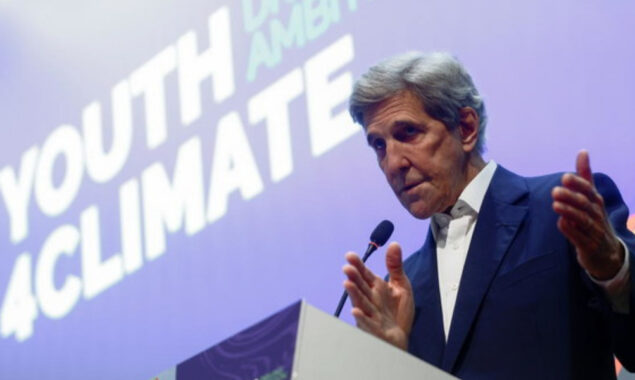Five Turkish soldiers killed in Iraq
The Turkish defence ministry announced on Wednesday that five Turkish troops were...

The host country, Egypt, has made it plain that financial aid for developing countries must be at the top of the agenda for this year’s UN climate negotiations, as states will be expected to follow through on commitments made at the Cop26 conference last year.
Cop27 will be held in Sharm el-Sheikh, Egypt, in November. The talks will take place in the shadow of Ukraine’s war, as well as rising energy and food prices around the world, leaving rich countries grappling with a cost-of-living crisis and poor countries grappling with mountainous debt.
Most of the world’s largest economies, as well as the largest producers of greenhouse gases, have failed to fulfil commitments made in Glasgow in November to enhance their emissions-cutting objectives.
Work to convert rich-country commitments of climate financing into programmes on the ground that aid poor nations has also been delayed.
Egypt’s minister for foreign cooperation, Rania Al Mashat, stated, “What we want this Cop[27] to be about is going from commitments to action.” And we want to emphasise what real policies and practises, processes, and procedures may actually put promises [into action] to overcome that gap.”
“We want this Cop to be about the practicalities: what do we need to do to operationalize the promises into implementation?” she continued.
She emphasised that certain nations have trouble acquiring access to money, which must be addressed with innovative methods of “de-risking” credit in order to attract private sector investment.
Governments might accomplish this by giving guarantees or other assurances to private lenders, or by co-investing with them.
“How the private sector was mobilised in a very major way is one of the triumphs from Glasgow that will always be recognised,” Mashat told a news channel. “Instead of only billions, the term trillions began to appear.
“However, until we have more synergy between [public sector] development financing and private capital to establish de-risking instruments, these billions from private sector promises or pledges will never make their way to the nations who need them the most.”
Egyptian Finance Minister Mohamed Maait also mentioned the need to address larger financial challenges, such as the “great weight” of increasing debt that many impoverished nations face.
“The threats of climate change do not affect just one country, but all of us,” he stated.
He said that rich countries will have to find methods to pay poor countries for not extracting more oil and gas. He used Senegal as an example, where huge gas finds are anticipated to alter the economy – but would also create a massive “carbon bomb,” the type that, if developed, would result in temperatures well beyond the 1.5C objective set in Glasgow.
“Senegal hoped that this finding would aid them.” “Now you’re saying that climate change implies halting funding,” Maait replied. “That is really concerning.”
Catch all the International News, Breaking News Event and Latest News Updates on The BOL News
Download The BOL News App to get the Daily News Update & Follow us on Google News.